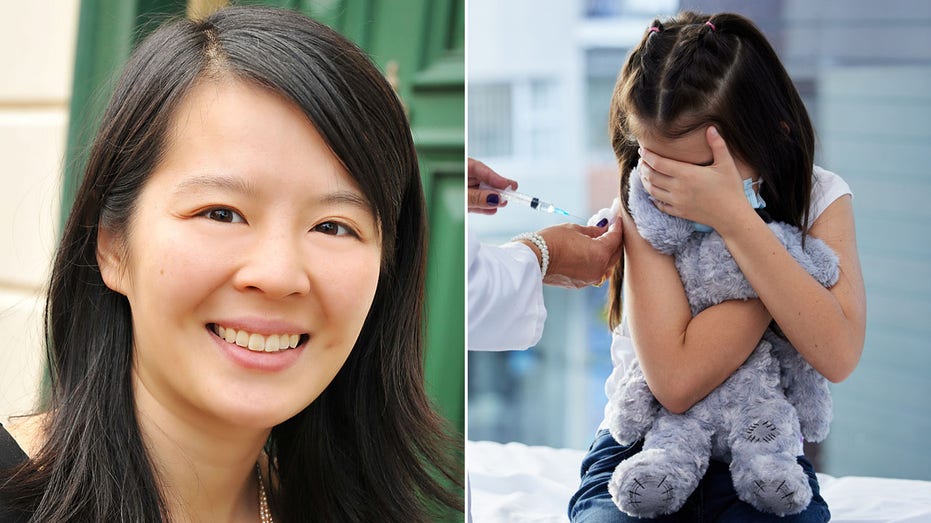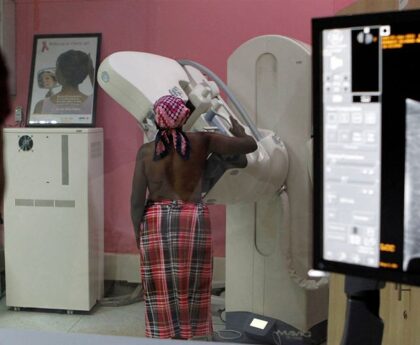Back-to-school time means a focus on children’s immunizations ahead of flu season — but the prospect of shots can be scary and anxiety-inducing for many kids.
Some two in three children have strong fears around needles, according to CDC data.
Evelyn Chan, pediatrician and CEO of Smileyscope in California, said preparing a child ahead of a vaccination or blood draw appointment can help alleviate anxiety and make the experience smoother.
MANY YOUNG KIDS ARE NOT GETTING ‘LIFE-SAVING’ VACCINES, STUDY FINDS: ‘CONCERNING TREND’
She shared her top tips with Fox News Digital.
The first step is to explain the procedure.
“Talk to your child in advance about what to expect during a vaccination or blood draw,” Chan said. “Use age-appropriate language to describe the process, emphasizing that it is a quick procedure to check their health.”
Next, Chan said to distract and relax the child.
She recommended engaging kids in activities to pull their focus away from the needle.
“This can include reading books, playing games or listening to music,” she said. “Deep breathing exercises or other relaxation techniques can also help reduce anxiety.”
During the process itself, be sure to offer positive reinforcement, encouragement and praise, Chan suggested.
COVID VACCINES ARE NOT NEEDED FOR HEALTHY KIDS AND TEENS, SAYS WORLD HEALTH ORGANIZATION
“Talk about the procedure positively — for example, remind them that it is an important step in keeping them healthy.”
Partnering with your child’s health care team is also key to reducing stress and anxiety.
“Doctors’ offices work with kids every day on blood draws and needle procedures,” Chan said.
EASE BACK-TO-SCHOOL ANXIETY FOR KIDS WITH THESE EXPERT TIPS
“Many offices are equipped with techniques and even technology that may help alleviate a child’s anxiety, such as medical virtual reality devices.”
During the actual shot or blood draw, Chan uses the following pain-minimizing tips, which she calls the “3 Ps”:
To help prevent needle phobia and medical anxiety as your child grows older, Chan offered additional tips.
“Seek out health care providers who are experienced in working with children and who have a gentle approach,” she suggested. “Positive experiences with caring professionals can help alleviate anxiety and build trust.”
The doctor also emphasized the importance of open communication.
“Encourage your child to express their fears and concerns openly,” she said. “Provide reassurance, validate their feelings and listen actively. Be supportive and offer comfort during medical appointments.”
At home, she said to consider engaging in role-playing activities where you or your child can play the role of a health care provider and practice procedures like blood draws. “This can help familiarize them with the process and reduce anxiety,” she said.
Finally, Chan suggested gradually exposing your child to medical environments and procedures.
CLICK HERE TO SIGN UP FOR OUR HEALTH NEWSLETTER
“Where possible, start with less invasive experiences and gradually progress to more involved ones,” she said. “This exposure can help desensitize them to their fears over time.”
Chan also pointed out a few things parents should avoid doing, as these may make the situation worse.
“Remember that each child is unique, and it’s essential to tailor your approach to their individual needs and temperament,” Chan concluded.
“If your child’s fear or anxiety persists or significantly affects their well-being, consider seeking professional help from a pediatrician or child psychologist.”
For more Health articles, visit www.foxnews/health
Article Source: Health From Fox News Read More




